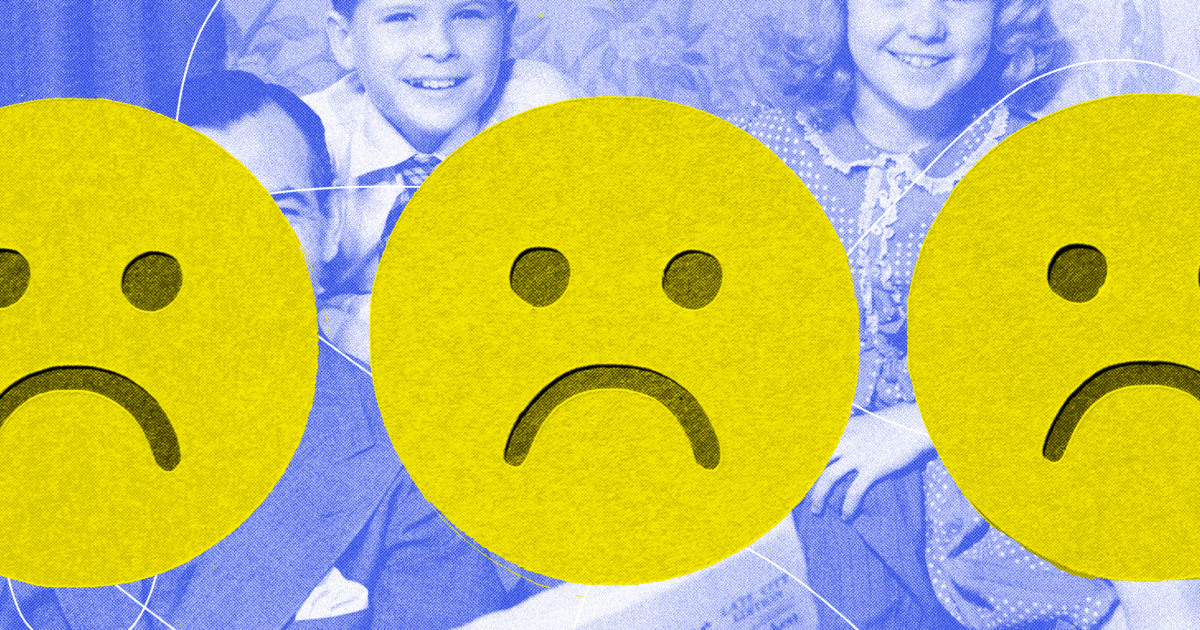Why Are Americans Not a Very Happy Group of People?
The answer may reside in our very way of life.
- The United States does not score high on international rankings of happiness.
- Scandinavians are consistently at the top of the list.
- The United States' competitive society is not ideal for seeding the possibility of happiness.
The new World
Happiness Report numbers are in and, for Americans, they’re not pretty: The United States fell from 15th to 23rd place in the international rankings of happiness, with Finland, Denmark, Iceland, and Sweden taking the top spots.
The logical questions are being asked: Why do Americans possess unimpressive levels of happiness? What are Scandinavians doing to consistently rank high? Most important, how can we become happier people?
As I showed in my
Happiness in America: A Cultural History, the hard truth is that Americans have never been a particularly happy group. Our perpetual search for happiness indicates widespread dissatisfaction and discontent with life in general, making the image of Americans as a happy-go-lucky people more mythology than reality. Our competitive and comparative American Way of Life has not proven to be an especially good formula for happiness, I argue, with external signs of success unlikely to produce appreciably happier people. Rather, happiness has more often come from being in and appreciating the moment, an idea that has major implications for how all of us might approach our lives in the future.
The Pursuit of Happiness
The pursuit of happiness—a phrase penned by the Founding Fathers in the Declaration of Independence—has served as a primary ambition for many Americans. Chasing something and catching it are two very different things, however, which is the root of the problem. Our expectations for happiness have far exceeded its realization, suggesting our way of life rooted in consumer capitalism has major flaws in terms of emotional fulfillment. In a nutshell, happiness has proven to be an elusive and often futile pursuit in this country, something that has held true across the social divisions of race,
gender, and class.
Paradoxically, perhaps, Americans’ uneasy relationship with happiness has escalated over the last century, with our more affluent society and bountiful marketplace not leading to a nation full of happy people. In fact, the broader desire for the good things in life has fueled greater disappointment, discontent, and dissatisfaction when happiness didn't result from wealth, power, or some other externally defined, other-directed measure of success.
Not surprisingly, many have over the years capitalized on Americans’ perceived happiness deficiency by offering advice on how they could become happier people. Happiness has represented a major segment of the how-to and
self-help business, although there is little evidence to suggest that any particular approach has actually worked. Marketers, too, have seized Americans’ deep desire to be happy by positioning their products and services as agents of happiness.
Much
attention has been paid to the relationship of happiness to another thing of great interest to most Americans: money. It has been generally believed that happiness is strongly correlated with prosperity, both personal and national, but this, too, has turned out to be a generally false assumption. A different set of challenges emerges with upward mobility, as anyone who has experienced it can tell you, with much evidence to suggest that both wealth and success may improve one’s quality of life but are not likely to produce a happier person.
Given all this, one has to question Americans’ inclination to work harder to make more money in order to become happier. Happiness is no doubt a very American idea, but the ways in which most of us pursue it are not very well suited to creating it. Our system of free market capitalism (the American Way of Life) and aspirational ethos (the American Dream) may actually be better designed to generate
stress than happiness, with the pressures of modern life not conducive to promoting a state of well-being. Our competitive society is at best not ideal and at worst fundamentally flawed in terms of seeding the possibility of happiness, something that more communitarian Scandinavians can attest to.
Truths About Happiness and Its Sources
Given all this, how can we become happier people? Findings from the abundance of research in the field lead us to some fundamental truths regarding happiness and its sources:
- Stay positive. Optimism—accentuating the positive and eliminating the negative, if you like—has always been strongly correlated with high levels of happiness.
- Find purpose. Having a sense of direction, the setting and reaching of goals, and taking pride in accomplishments are all woven into the fabric of happiness.
- Reside in the present. Living as much as possible in the moment, rather than dwelling on the past or worrying about the future, is a guiding principle of happiness.
- Face reality. Regular reality checks help one manage one’s expectations and keep the ups and downs of life in perspective.
- Appreciate what you have. Taking pleasure in and being grateful for what one has chases away common scourges of unhappiness like envy and disappointment.
- Embrace humbleness. Being fully aware of your limitations is, oddly enough, a prime way to feel really good about yourself.
- Emanate kindness. Adopting a philosophy of and approach to life simply around being kind is a powerful source of happiness for oneself and others.
- Be generous. Enabling the well-being of friends, family, and complete strangers has proven to be a winning formula for personal happiness.
- Strive for patience. An awareness of the vicissitudes of time and the imperfections within us all serves as a valuable tool in achieving happiness.
- Remain curious. Viewing life as an endless opportunity to learn and/or experience things is a literally wonderful path to happiness.
The keys to happiness are not what many us think they are.

www.psychologytoday.com



